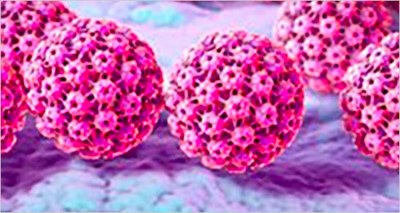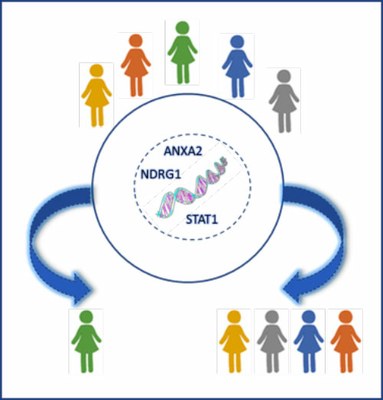Medicine: Molecular signature predicting response to cervical cancer treatments identified
19/9/2019
 Predicting the response to treatment in patients with cervical cancer thanks to the outcomes of a multidisciplinary collaboration study among the Faculty of Medicine and Surgery of the Catholic University, the Agostino Gemelli University Hospital Foundation and ENEA – Division of Technologies and Methodologies for Health Protection (in collaboration with ISPAAM-CNR).
Predicting the response to treatment in patients with cervical cancer thanks to the outcomes of a multidisciplinary collaboration study among the Faculty of Medicine and Surgery of the Catholic University, the Agostino Gemelli University Hospital Foundation and ENEA – Division of Technologies and Methodologies for Health Protection (in collaboration with ISPAAM-CNR).
The study has identified a molecular signature made of three genes (ANXA2, NDRG1 and STAT1) predicting the response to neoadjuvant radiochemotherapy (CRT) treatment in patients with locally advanced cervical cancer. The researchers (clinicians, molecular biologists, radiobiologists, pharmacologists, bioinformatics), were coordinated by Giovanni Scambia, Professor of Obstetrics and Gynecology at the Catholic University and Scientific Director of the University Hospital Foundation Agostino Gemelli, IRCCS, Daniela Gallo, Health Director of the Catholic University and Head of the Translational Medicine Unit for Women's and Children's Health at the A. Gemelli University Hospital IRCCS, and Carmela Marino, Head of the ENEA Division of "Technologies and Methodologies for Health Protection".
The outcomes, patented and presented at Techshare Day 2019 in Turin on June 25th, were published in the Journal of Experimental & Clinical Cancer Research.
"In our department, neoadjuvant radiochemotherapy followed by radical surgery is the most frequent therapeutic option in patients with locally advanced cervical cancer. However, around 30% of patients do not respond optimally to therapy and present early disease recurrence. This is the basis of an ambitious translational research project aimed at identifying potential predictive response biomarkers in our clinical setting, Giovanni Scambia explained.
 "It was a very complex work that, starting from the comparison of the protein profile of tissue biopsies of patients with known response to therapy (sensitive or resistant to CRT treatment) developed up to the understanding of the molecular mechanisms underlying the role of the 3 genes identified as response biomarkers (ie ANXA2, NDRG1 and STAT1) ”, Marianna Buttarelli, biologist at the Institute of Obstetric and Gynecological and first author of the publication, pointed out.
"It was a very complex work that, starting from the comparison of the protein profile of tissue biopsies of patients with known response to therapy (sensitive or resistant to CRT treatment) developed up to the understanding of the molecular mechanisms underlying the role of the 3 genes identified as response biomarkers (ie ANXA2, NDRG1 and STAT1) ”, Marianna Buttarelli, biologist at the Institute of Obstetric and Gynecological and first author of the publication, pointed out.
"The machine learning algorithm we have developed - Daniela Gallo continued- allows us to determine the probability of sensitivity or resistance to CRT, starting from the expression level of the markers of interest, measured with a method commonly used in laboratories and easy to use. Once validated on a broad spectrum of patients, these results could be a key step towards the application of personalized therapeutic approaches in the treatment of the disease.
The identification of molecular biomarkers predictive of therapy response, that is measurable characteristics, is in fact one of the most important objectives of personalized medicine.
The ability to transfer the results obtained in the laboratory to clinical practice is decisive for the purpose of translational research, that is to say creating kits for rapid and inexpensive screening of patients, ”Gallo said.
For more information please contact:
Carmela Marino, ENEA – Head Division “Technologies and Methodologies for Health Protection”, carmela.marino@enea.it
